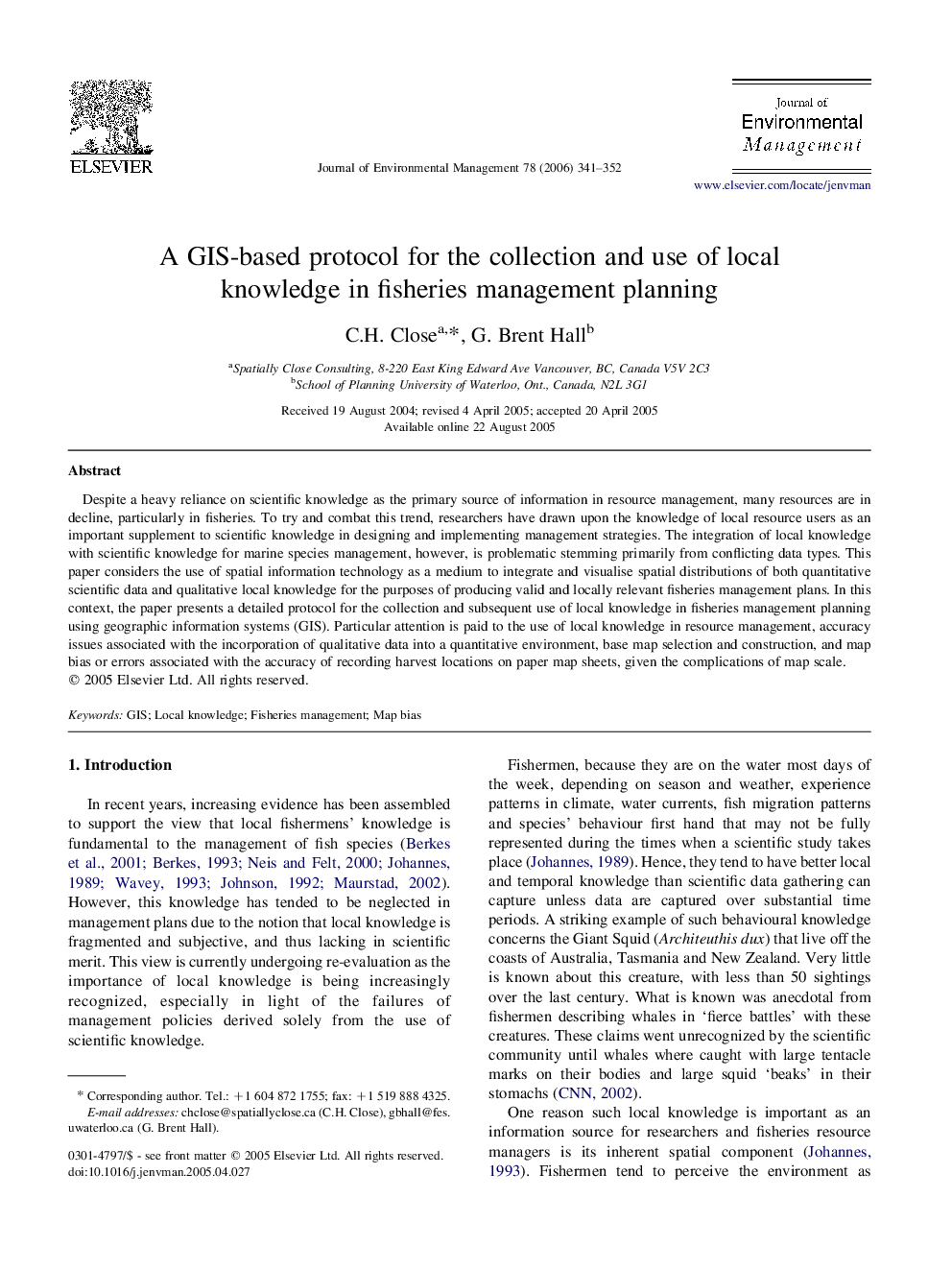| Article ID | Journal | Published Year | Pages | File Type |
|---|---|---|---|---|
| 1058892 | Journal of Environmental Management | 2006 | 12 Pages |
Despite a heavy reliance on scientific knowledge as the primary source of information in resource management, many resources are in decline, particularly in fisheries. To try and combat this trend, researchers have drawn upon the knowledge of local resource users as an important supplement to scientific knowledge in designing and implementing management strategies. The integration of local knowledge with scientific knowledge for marine species management, however, is problematic stemming primarily from conflicting data types. This paper considers the use of spatial information technology as a medium to integrate and visualise spatial distributions of both quantitative scientific data and qualitative local knowledge for the purposes of producing valid and locally relevant fisheries management plans. In this context, the paper presents a detailed protocol for the collection and subsequent use of local knowledge in fisheries management planning using geographic information systems (GIS). Particular attention is paid to the use of local knowledge in resource management, accuracy issues associated with the incorporation of qualitative data into a quantitative environment, base map selection and construction, and map bias or errors associated with the accuracy of recording harvest locations on paper map sheets, given the complications of map scale.
